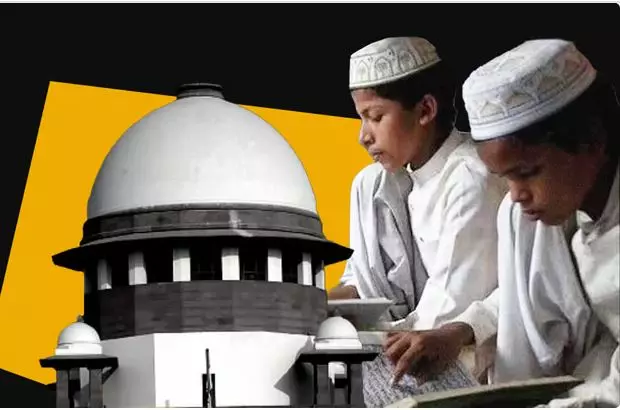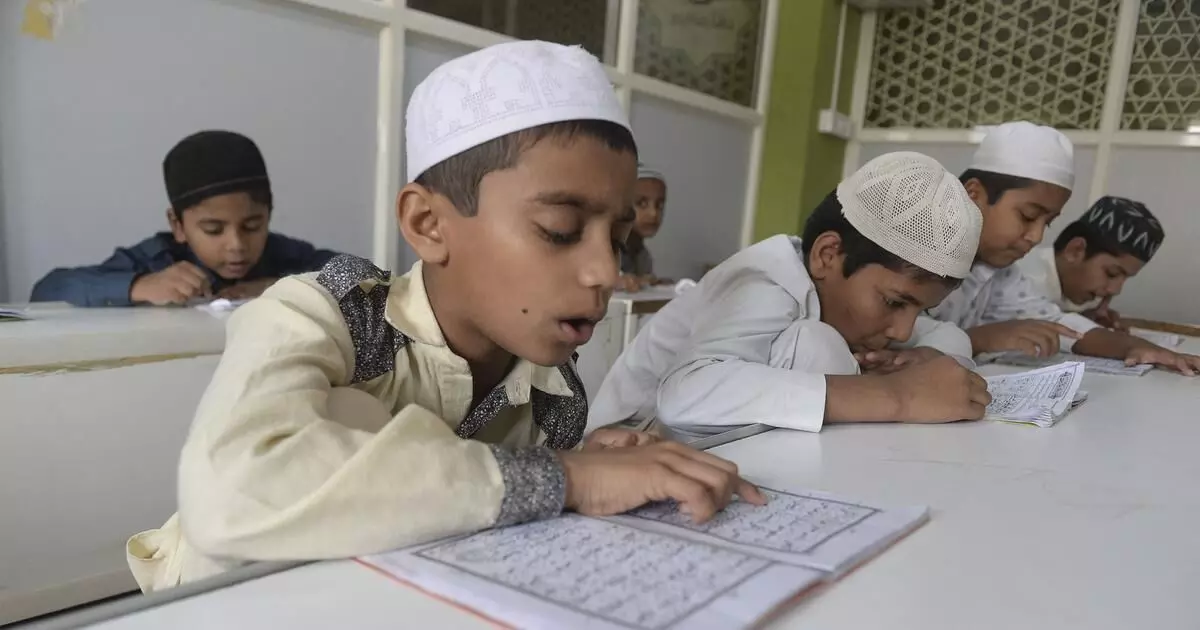
SC finds Allahabad HC’s ruling on Madrasa Act’s unconstitutionality erroneous
text_fieldsThe Supreme Court has upheld the constitutional validity of the Uttar Pradesh Board of Madarsa Education Act, 2004, annulling the Allahabad High Court order. The High court's interpretation suggesting that the Act could be struck down simply for being against the basic structure of the Constitution was deemed erroneous, while striking down certain provisions regarding the awarding of higher degrees such as Fazil and Kamil.
This landmark decision was made by a three-judge bench led by Chief Justice DY Chandrachud, who overturned a previous ruling by the Allahabad High Court that deemed the Act unconstitutional.
In its judgment, the Supreme Court stated that the Act's core function is to regulate the standard of education in Madarsas recognised by the Board, ensuring that students receive quality education to enable them to effectively participate in society and earn a livelihood.
The court underscored the necessity of aligning the Right to Education (RTE) Act with the rights of religious and linguistic minorities to establish and manage educational institutions of their choice.
However, the court found that the provisions allowing the Board to award higher degrees are unlawful, as they conflict with the University Grants Commission (UGC) Act of 1956. The UGC Act governs standards for higher education, and the Supreme Court clarified that state legislation cannot regulate higher education in contradiction to this federal law.
The bench, which also included Justices J B Pardiwala and Manoj Misra, ruled that while the Madrasa Act is within the legislative competence of the state legislature regarding standard educational practices, its attempts to govern higher education degrees exceed this authority. The court noted that only the UGC has the power to establish criteria for higher education qualifications, and thus the Act cannot assert control over degrees awarded at this level.
In addressing concerns raised about the Act's compatibility with the principle of secularism, the court explained that a statute can only be invalidated if it violates specific constitutional provisions or lacks legislative competence. The High Court's interpretation, which suggested that the Act could be struck down simply for being against the basic structure of the Constitution, was deemed erroneous.
Furthermore, the Supreme Court acknowledged the importance of maintaining educational standards in minority institutions, indicating that the right of minorities to administer educational establishments is not absolute. The state has a legitimate interest in regulating these institutions to ensure they meet certain educational benchmarks, which may include conditions for recognition or financial aid.
The court highlighted that the provisions of the Madrasa Act aim to enhance the academic performance of students in recognised Madarsas. It noted that the Act provides opportunities for students to undertake examinations that will enable them to pursue higher education and secure better livelihoods. This, according to the court, aligns with the state's obligation to ensure that all students achieve a minimum level of competence.
The judgment further clarified that while Madrasas may provide religious instruction, their primary purpose is education. The court reiterated that the UGC and state governments possess adequate authority to set and regulate educational standards in Madrasas, which can include aspects such as curriculum, teacher qualifications, and student welfare.
























